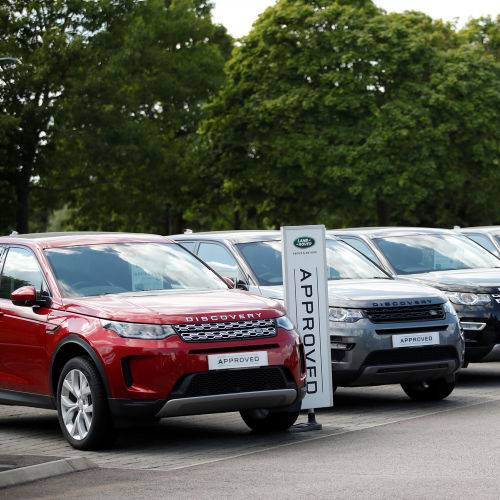While global automotive industry focuses efforts on developing battery-electric cars, Indian-owned carmaker looks an alternative source of power
(AF) Jaguar Land Rover Automotive (JLR) said on Tuesday it would begin tests later this year on a hydrogen fuel-cell prototype model based on its Land Rover Defender vehicle as the carmaker looks to expand its zero-emission car options.
Earlier this year, JLR, owned by India’s Tata Motors, said that its luxury Jaguar brand will be entirely electric by 2025, and the off-road Land Rover brand would launch six pure electric models over the next five years.
Most of the automotive industry is focusing its efforts on developing battery-electric cars to meet tightening emission standards in Europe and China.
But JLR is one of a small number of carmakers that sees possibilities for the mass adoption of hydrogen fuel.
RAPID REFUELLING
Hydrogen fuel cells “provide high energy density and rapid refuelling, and minimal loss of range in low temperatures, making the technology ideal for larger, longer-range vehicles, or those operated in hot or cold environments,” JLR said in a statement.
The Defender has recently undergone a wave of popularity after a modified variant was used as a hearse for the April 17 funeral of the Duke of Edinburgh, the late husband of Britain’s Queen Elizabeth II.
Land Rover is one of the few carmakers to have received a royal warrant in the UK, but it no longer advertises the honour on its website.
In May, the Moody’s rating agency upgraded JLR to stable from negative. “Moody’s views JLR’s new strategy and financial targets, announced in February 2021 towards electrification, improving profitability and free cash flow generation as positive.”
TESTS TO BE CONDUCTED
The hydrogen Land Rover Defender will undergo tests to “verify key attributes such as off-road capability and fuel consumption,” the company said.
As well as offering the prospect of harmless emissions, hydrogen fuel cells also provide greater range than battery-electric cars. But there is little fuelling infrastructure currently in place to support mass adoption of the technology.
German carmaker BMW plans a limited series hydrogen fuel cell model SUV in 2022 as it continues to research zero-emission alternatives to battery-electric cars.
In December, Japanese carmaker Toyota Motor Corp unveiled its revamped Mirai hydrogen fuel-cell car, in a fresh push to promote the zero-emission technology amid rapidly growing demand for electric vehicles.
With reporting by Reuters
ALSO SEE:
Jaguar’s great EV leap forward comes with net zero pledge
Electric vehicles yet to get the groove in India
JLR to launch electric Jaguar I-PACE in India in early 2021
























